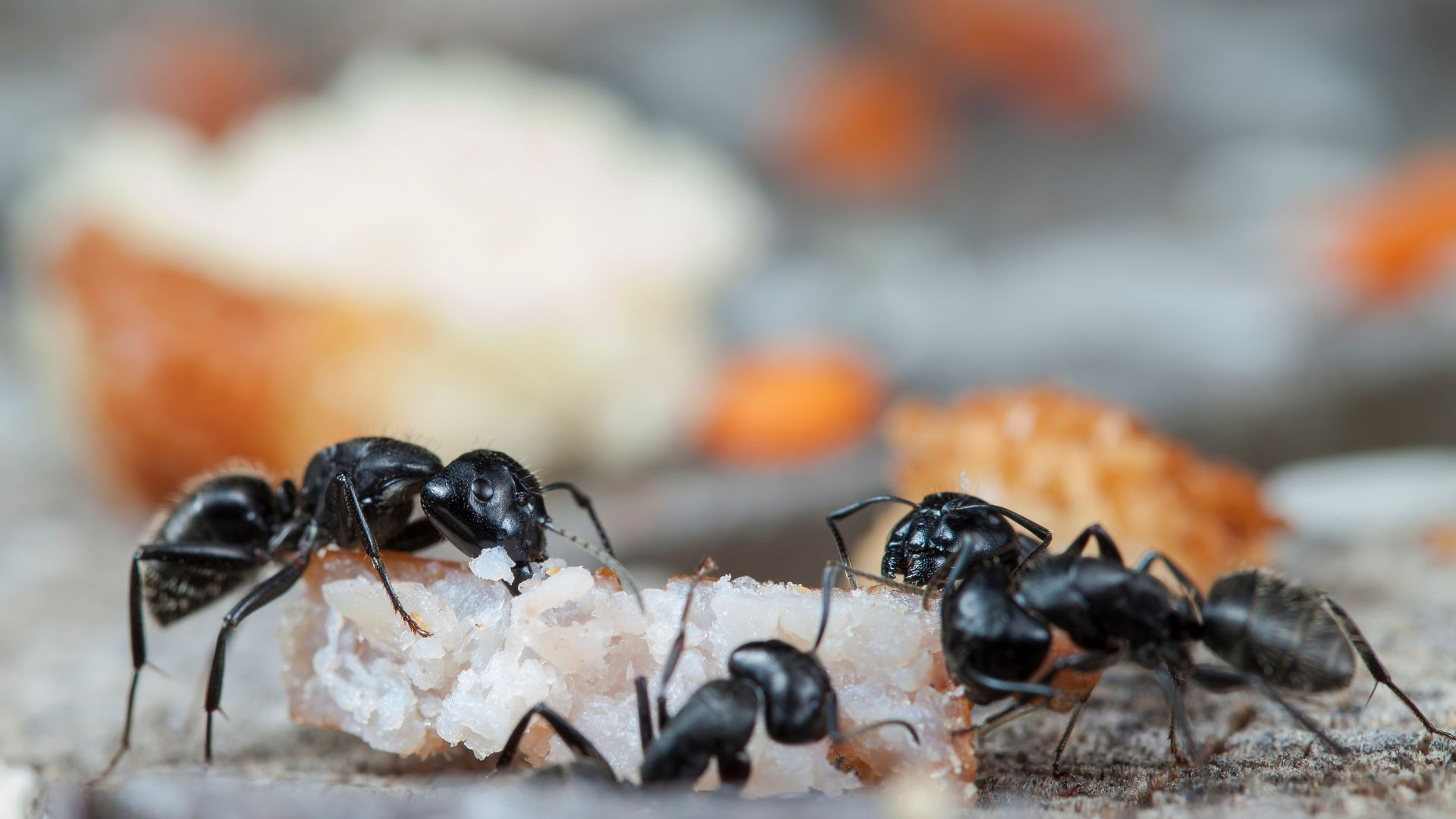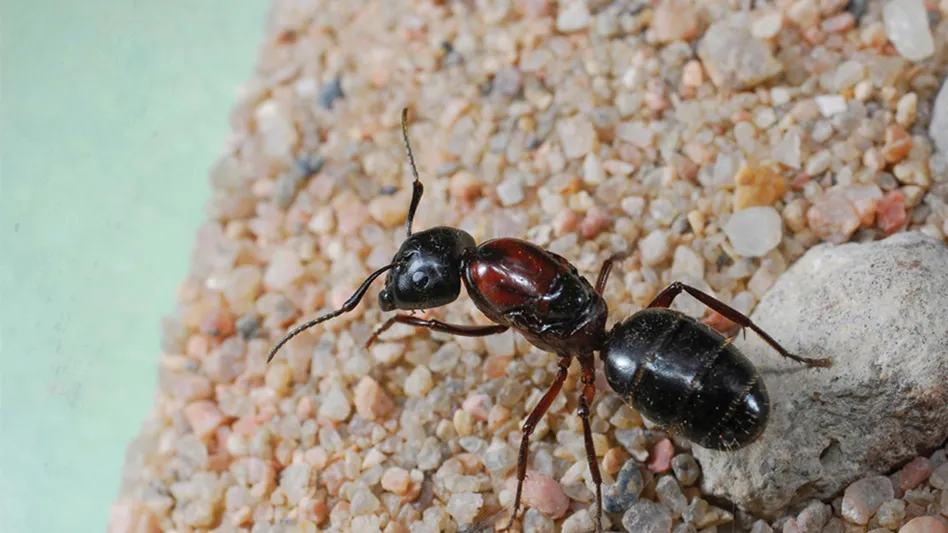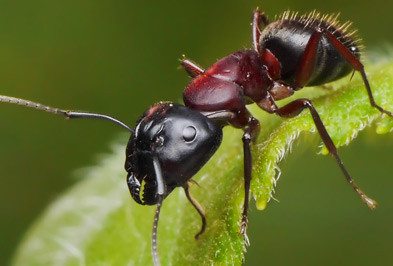Top Ant Control Services: Dependable Solutions for Your Home or Business
Top Ant Control Services: Dependable Solutions for Your Home or Business
Blog Article
Ecological Impact of Parasite Control: Harmonizing Performance With Sustainability
The ecological influence of pest control is an important problem that needs a delicate balance between accomplishing effectiveness in making sure and handling bugs sustainability of our environments. From the use of unsafe chemicals that permeate right into our soil and water to the unintended consequences on non-target species, the effects of conventional bug control practices are significant.
Harmful Chemicals in Bug Control
The application of unsafe chemicals in insect control poses significant ecological and health and wellness dangers that necessitate cautious consideration and mitigation strategies. Pesticides, chemicals, and herbicides are commonly utilized to eradicate parasites, however their prevalent application can bring about unexpected effects. These chemicals can pollute soil, water resources, and the air, impacting not only the targeted parasites yet likewise valuable bugs, wildlife, and human beings.

To attend to these dangers, integrated insect monitoring (IPM) strategies are being promoted as a much more lasting option. IPM entails a mix of techniques such as biological control, environment adjustment, and the targeted use pesticides as a last hope (ant control lake norman of catabwa nc). By embracing an all natural method to pest control, we can lessen the ecological and health effects connected with unsafe chemicals while efficiently taking care of pest populaces
Influence on Non-Target Types
Considering the unplanned effects of pest control methods, the influence on non-target species is an important facet that needs detailed analysis. While bug control measures intend to target certain bugs, various other microorganisms in the environment may be unintentionally impacted. Non-target types, including advantageous insects, birds, mammals, and even plants, can endure indirect or straight harm from pesticide applications or biological control methods.
Pesticides can have deadly or sub-lethal results on non-target types. Pesticides designed to combat a certain bug pest might hurt pollinators like bees or all-natural killers such as ladybugs. Additionally, chemical deposits can gather in the setting, impacting non-target microorganisms over time. Likewise, biological control agents, otherwise species-specific, can posture dangers to unexpected targets, interfering with the ecological equilibrium.
To reduce the influence on non-target varieties, incorporated parasite management (IPM) strategies that emphasize an alternative approach to pest control are recommended. These approaches focus on using environmentally pleasant techniques, lessening harm to valuable organisms while properly managing pest populaces. Performing extensive risk evaluations and checking the outcomes of bug control efforts are essential action in protecting non-target varieties and promoting general community wellness.
Soil and Water Contamination
Unintentional environmental effects of bug control approaches expand past impacting non-target species, with significant implications for soil and water contamination. Chemicals, herbicides, and chemical plant foods made use of in bug control can leach into the soil and pollute groundwater, presenting a danger to both marine and terrestrial ecosystems. Dirt contamination can disrupt the equilibrium of microbes important for nutrition cycling and plant growth, bring about decreased soil fertility and performance. Furthermore, these chemicals can persist in the environment for extensive durations, collecting in the soil and possibly getting in the food chain.
Water contamination is one more important problem linked with pest control techniques. Drainage from farming areas treated with chemicals can lug these chemicals into neighboring water bodies, affecting aquatic microorganisms and water quality. Contaminants in water resources can have significant effects, influencing not just marine life however likewise human health and wellness via the usage of infected water or marine organisms. To reduce dirt and water contamination from insect control activities, incorporated parasite administration approaches that prioritize sustainability and reduce chemical inputs are crucial.
Air Air Pollution From Pesticide Usage
Exposure to air-borne chemicals during agricultural applications postures a significant concern for air contamination control actions. They can volatilize right into the air and kind unpredictable organic substances (VOCs) and other air-borne pollutants when pesticides are sprayed onto plants - termite control. These chemicals can add to the formation of ground-level ozone, a significant part of smoke that can have detrimental results on human health and wellness, plant performance, and general air top quality. Furthermore, pesticide drift, where chemicals are brought by the wind to unexpected areas, can lead to the contamination of nearby communities and water bodies.

Methods for Sustainable Insect Control
In the world of farming practices, applying sustainable pest control approaches is extremely important for maintaining eco-friendly equilibrium and protecting crop returns. Lasting insect control stresses making use of eco-friendly techniques to take care of pest populaces efficiently while lessening harm to non-target microorganisms and ecological communities. read the article Integrated Pest Monitoring (IPM) is an extensively embraced strategy that incorporates biological, cultural, physical, and chemical control techniques to accomplish lasting parasite administration options.
One key method in sustainable insect control is promoting biodiversity within agroecosystems. By boosting all-natural opponents of bugs, such as parasitoids and predators, farmers can decrease the requirement for synthetic pesticides. Crop turning and diversity are additionally efficient methods to interfere with pest life process and produce less beneficial conditions for parasites to thrive. Additionally, using pest-resistant plant selections and utilizing techniques like catch chopping can help in reducing insect pressure without relying greatly on chemical interventions. Ultimately, by integrating these sustainable pest control techniques, farmers can attain an equilibrium between pest management performance and environmental stewardship.
Verdict
In final thought, the environmental influence of pest control techniques must be meticulously considered to stabilize performance with sustainability. Damaging chemicals used in insect control can bring about dirt and water contamination, air pollution, and damage non-target varieties - termite control services. It is vital to execute lasting bug control strategies to reduce these unfavorable results on the environment and advertise a healthier environment for future generations
By embracing a holistic technique to pest control, we can reduce the ecological and health and wellness influences linked with damaging chemicals while properly managing pest populations.

To alleviate the air pollution created by pesticide usage, it is vital to take on integrated parasite management approaches that prioritize the usage of non-chemical pest control methods, such as crop rotation, all-natural predators, and immune plant varieties. Sustainable parasite control emphasizes the usage of eco friendly techniques to take care of insect populaces efficiently while decreasing injury to non-target microorganisms and communities. Integrated Bug Monitoring (IPM) is a widely embraced strategy that combines biological, social, physical, and chemical control techniques to attain lasting pest administration remedies.
Report this page